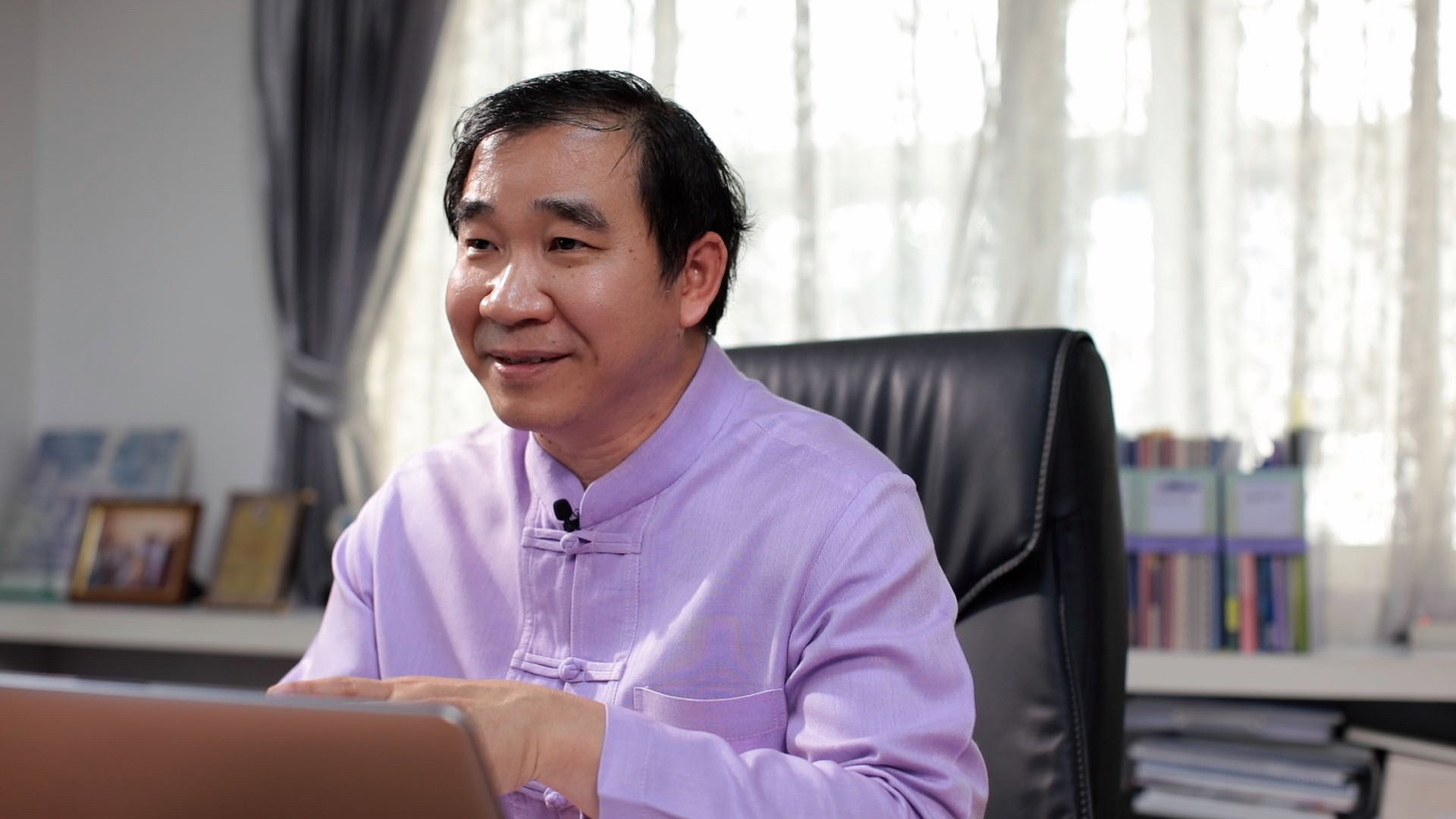Thalassemia is a genetic disease affecting hemoglobin production so that the body does not produce enough hemoglobin protein.
While considered a ‘rare disease’ impacting around 4.4 out of every 10,000 live births globally, some countries have higher risk factors than others. Thailand has a particularly high incidence of thalassemia carriers with approximately 18-24 million people, or 30-40% of the total population, carrying the thalassemia gene.
 Prof. Sakorn Pornprasert, Dean of the Faculty of Associated Medical Sciences at Chiang Mai University
Prof. Sakorn Pornprasert, Dean of the Faculty of Associated Medical Sciences at Chiang Mai University
According to Prof. Sakorn Pornprasert, Dean of the Faculty of Associated Medical Sciences at Chiang Mai University, and one of Thailand’s leading researchers into thalassemia, “for every thousand pregnancies, there could be six cases of severe thalassemia which might be made up of two of Bart’s hydrops fetalis, one case of homozygous beta thalassemia or beta thalassemia major and three cases of the beta thalassemia hemoglobin E disease.”
Severe thalassemia can result in patients needing regular blood transfusions: some people may also require a transplantation of stem cells or bone marrow. And as with any disease, different people may develop a variety of different problems.
Prof. Pornprasert’s research focuses on the diagnosis of thalassemia and identifying its gene mutations. “Searching for mutations is not always easy,” he explains. “Some mutations of thalassemia cannot be identified even if the patient comes to see me with anemia. Some new mutations cannot be detected by traditional technology.” This is where BGI Group’s whole genome sequencing has proven transformational as it is capable of detecting a greater number of mutations as well as novel mutations.
Prof. Pornprasert notes that by using BGI whole genome sequencing he can understand the cause of the mutations. “It will be very beneficial that we can use the BGI technology to identify the novel mutations to design specific probe and primer to diagnose the novel mutation, and then use this technology to ask the routine laboratory to diagnose the specific type of novel mutations.”
He is also well aware of encouraging people at risk, particularly those seeking to have children to take a blood test to help identify whether they carry the thalassemia gene, which carries a higher risk of passing it on to children. “It is very important to educate everyone about severe thalassemia, especially those who are at reproductive age before getting married, so they can decide what they would do if they would like to have a child without thalassemia disease,” he says.
The Ministry of Public Health in Thailand has implemented a policy for thalassemia prevention and control that offers free laboratory tests and prenatal diagnosis to encourage more people to undergo screening.
BGI Genomics, a listed subsidiary of BGI Group, recently released its ‘Global 2023 State of Thalassemia Awareness Report’ which highlighted that a lower percentage of Thai women (3.9%) are willing to go for prenatal thalassemia screening compared to the global average (5.5%). Prof. Pornprasert highlighted the importance of elevating trust in healthcare professionals to disseminate information and address concerns in order to build confidence in the importance and safety of prenatal screening.
However, the research also revealed that compared to the global coverage, a higher percentage of Thai women can convince their partners to undergo generic counseling and genetic diagnosis. Prof. Pornprasert observes that this is in part due to a cultural emphasis on unity, open communication and shared decision-making.
BGI Group is actively supporting Thailand through the ‘Screening Diagnosis Treatment; program, which is tailored to thalassemia management. The program results from a collaboration between BGI Group and local Thai agencies, such as the Eastern Economic Corridor Office and the Thai Ministry of Public Health to initiate clinical trials for gene therapy for thalassemia.
BGI Group is also collaborating with Prof. Pornprasert’s faculty at Chiang Mai University to conduct a comparative study on the performance of Thailand’s current screening method versus BGI’s screening technology for thalassemia.
Prof. Pornprasert is encouraged not just by the new tests and technology, but by the different types of diseases these can address: “We also pay attention to the non-communicable diseases, infectious diseases and the gene mutations that relate to cancer. With the BGI technology we can search for a targeted treatment using a specific drug.”
It is this gene changing approach to addressing thalassemia and other diseases that is so important and why BGI Group works with scientists like Prof. Pornprasert to fight the battle more effectively and safeguard human health.



